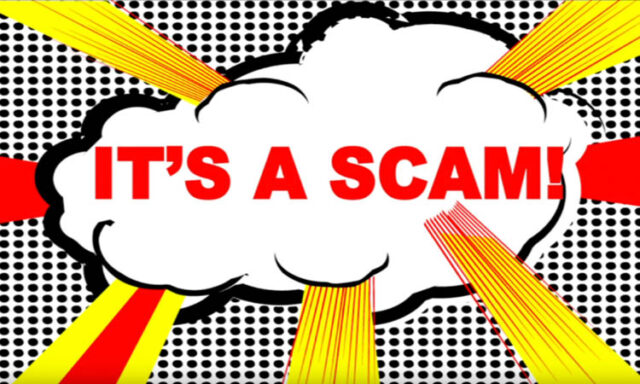Becoming the victim of a scam can be an emotionally and financially distressing experience. Whether it’s an online phishing scheme, a fraudulent investment, or a deceptive romance, scammers are skilled at exploiting trust and manipulating individuals. If you find yourself in the unfortunate position of being a victim of a scam, it’s essential to take immediate action to protect yourself and mitigate the damage. In this blog post, we’ll provide you with a step-by-step guide on what to do if you’ve been targeted and victimized by a scammer.
- Don’t Blame Yourself
It’s important to remember that scammers are professionals at what they do. They prey on trust, vulnerability, and human emotions. Being a victim of a scam does not reflect your intelligence or competence. Scammers target individuals from all walks of life.
- Stop All Communication
If you’ve been communicating with the scammer, cease all contact immediately. Do not respond to their emails, messages, or phone calls. Block their contact information if possible.
- Document Everything
Gather all relevant information related to the scam, including emails, messages, phone numbers, and any documents or transactions. These records will be valuable when reporting the incident and seeking assistance.
- Report the Scam
Depending on the nature of the scam, report it to the appropriate authorities and organizations:
- Online Scams: Report online scams to your local law enforcement agency and the Federal Trade Commission (FTC) in the United States or the equivalent agency in your country.
- Financial Scams: If you’ve been scammed out of money, contact your bank or financial institution immediately to report the incident.
- Phishing Scams: Forward phishing emails to the Anti-Phishing Working Group (APWG) at reportphishing@apwg.org and to the organization the scammer impersonated.
- Secure Your Accounts
If the scam involves compromised accounts or personal information, change your passwords immediately. Use strong, unique passwords for each account and consider enabling two-factor authentication (2FA) for added security.
- Monitor Your Accounts
Regularly monitor your financial accounts, credit reports, and online presence for any signs of fraudulent activity or identity theft. Report any unauthorized transactions to your bank or credit card company.
- Seek Support
Being a victim of a scam can take an emotional toll. Reach out to friends, family, or a support group to share your experience and feelings. Talking about it can help you process the situation and regain emotional well-being.
- Be Wary of Follow-Up Scams
Scammers may attempt to capitalize on the initial scam by posing as recovery agents or offering to help you recover your losses for a fee. Be cautious of any unsolicited offers and conduct due diligence before engaging with anyone claiming to assist you.
- Learn from the Experience
Use this unfortunate experience as an opportunity to educate yourself about common scams and online safety practices. Being informed and vigilant is your best defense against future scams.
- Report to Online Platforms
If the scam occurred on a specific online platform, report it to the platform administrators. They may take action against the scammer and prevent them from targeting others.
Conclusion
Becoming a victim of a scam is a distressing experience, but taking immediate action is crucial for minimizing the damage and preventing further harm. Remember, you are not alone, and there are resources and support available to help you recover. By following these steps and staying vigilant in the future, you can protect yourself and others from falling victim to scams.


